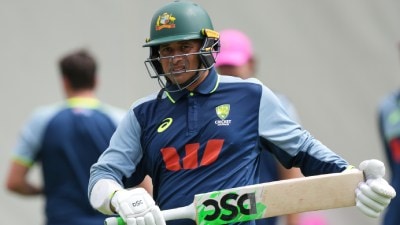Leave governors alone
While caretaker governments should avoid dismissing and appointing state governors as far as possible, changes at Raj Bhavans under caret...

While caretaker governments should avoid dismissing and appointing state governors as far as possible, changes at Raj Bhavans under caretaker regimes are not unprecedented. I.K. Gujral and before him Chandra Shekhar made gubernatorial appointments.
How-ever, such decisions are bound to invite controversy unless they are taken and, more importantly, seen to be taken for routine administrative purposes. It cannot be said that the Vajpayee government8217;s request to the Governors of West Bengal and Arunachal Pradesh, A.R. Kidwai and Mata Prasad, to resign falls squarely in that category. There is more than one reason, on the face of it, why the Centre has opened itself to the Opposition charge of making a politically motivated decision.
Kidwai8217;s term expired last August and Mata Prasad8217;s in October and there appeared to be no great haste all these past months to find a successor. An extension of six more months would not be exceptionable. Given that and the fact that West Bengal and Arunachal Pradesh aregoverned by major political opponents of the BJP, it becomes incumbent on the Vajpayee government in the interests of maintaining healthy Centre-state relations to explain why the governors had to be moved out at this juncture.
Furthermore, it is at all times a good practice for Centre-State consultations to precede a change of governors. In the light of what occurred in Bihar, the CPIM8217;s fears about a member of the RSS being foisted on the state as governor are not misplaced.
For both reasons, prior consultation was absolutely essential to avoid misunderstandings. The sudden and inexplicable removal of Kidwai will inevitably fuel other kinds of speculation about the government8217;s objectives.
Some of it will focus on the role of Mamata Banerjee who has from the start of her association with the BJP complained about law and order conditions in West Bengal and demanded the dismissal of the Jyoti Basu government. It was at her behest that Home Minister L.K. Advani took the extraordinary step ofdespatching an official fact-finding mission to the state. It makes it curious, to say the least, for the BJP to decide to appoint a new governor while it is talking to the Trinamool Congress about a pre-election alliance.
Several constitutional experts confirm that in furtherance of the governance of the country a caretaker government can exercise full powers avoiding only substantive policy decisions with long-term implications and decisions requiring Parliamentary sanction. That gives the Vajpayee government plenty of scope to carry out its duties. Precedents provide only a partial guide to what can and cannot be done.
For the most part the government will have to exercise its own judgment and defer to the President8217;s advice. But the rationale for its decisions should at all times be clear. Recent CCEA decisions on Indian Airlines, National Fertilisers, Gandhar natural gas complex etc pass that test. The transfer of over 20 Union government secretaries which involved, among others, such departmentsas official languages, rural development and water resources, did not do so entirely. Changing governors is far more politically sensitive than reshuffling secretaries and new appointments should not be made unless there are demonstrably urgent and overwhelming reasons to do so.
- 01
- 02
- 03
- 04
- 05































